At the trade deadline of 2007, the Red Sox were deemed big winners because it was thought they had landed the reliever who might have the highest impact, Eric Gagne. But as that season played out, Gagne was nothing short of a disaster, struggling badly with his command, and by the end of the year, he had lost any semblance of a meaningful role.
And the Red Sox won the World Series anyway.
By November, we will have a clearer picture of the trade deadline work done by baseball front offices. But for now, here are some quick grades for all 30 teams.
 Los Angeles Dodgers: A-plus. Once they landed Manny Machado, they clinched a perfect score here, because he was deemed by front offices everywhere -- from Philadelphia to the Bronx to Arizona to Milwaukee to L.A. -- as the one slam-dunk difference-making player. He's already paying dividends for the Dodgers: With Justin Turner out, Machado has moved to third base and is hitting .304 with a .500 slugging percentage, in keeping with his season-long performance. Even if the Dodgers fail to win the World Series, even if they fail to reach the postseason, the front office can know it turned over every rock to get better during the season, by landing Machado, second baseman Brian Dozier and reliever John Axford.
Los Angeles Dodgers: A-plus. Once they landed Manny Machado, they clinched a perfect score here, because he was deemed by front offices everywhere -- from Philadelphia to the Bronx to Arizona to Milwaukee to L.A. -- as the one slam-dunk difference-making player. He's already paying dividends for the Dodgers: With Justin Turner out, Machado has moved to third base and is hitting .304 with a .500 slugging percentage, in keeping with his season-long performance. Even if the Dodgers fail to win the World Series, even if they fail to reach the postseason, the front office can know it turned over every rock to get better during the season, by landing Machado, second baseman Brian Dozier and reliever John Axford.
 Pittsburgh Pirates: A. Look, there is debate among teams about whether Chris Archer will ever be a No. 1-type starter again, and only with an application of truth serum would we know whether the Rays felt the same way and decided to move Archer now, before regression. But for the small-market Pirates, Archer's no-risk, team-friendly contract itself holds incredible value, with the team option years for 2020 and 2021, and so even if Archer doesn't pitch to All-Star capability again and is merely a solid pitcher, this is a good deal. So is the addition of Keone Kela, one of the best available relievers.
Pittsburgh Pirates: A. Look, there is debate among teams about whether Chris Archer will ever be a No. 1-type starter again, and only with an application of truth serum would we know whether the Rays felt the same way and decided to move Archer now, before regression. But for the small-market Pirates, Archer's no-risk, team-friendly contract itself holds incredible value, with the team option years for 2020 and 2021, and so even if Archer doesn't pitch to All-Star capability again and is merely a solid pitcher, this is a good deal. So is the addition of Keone Kela, one of the best available relievers.
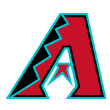 Arizona Diamondbacks: A-minus. Within the context of their market and resources, they did well. Lacking the wealth of major league-ready prospects to land someone like Machado, they instead added Eduardo Escobar in a deal with the Twins -- and Escobar is a really good player. They also improved Torey Lovullo's bullpen depth, trading for Matt Andriese and then digging out a combination of relievers who might work in tandem -- left-hander Jake Diekman and right-hander Brad Ziegler.
Arizona Diamondbacks: A-minus. Within the context of their market and resources, they did well. Lacking the wealth of major league-ready prospects to land someone like Machado, they instead added Eduardo Escobar in a deal with the Twins -- and Escobar is a really good player. They also improved Torey Lovullo's bullpen depth, trading for Matt Andriese and then digging out a combination of relievers who might work in tandem -- left-hander Jake Diekman and right-hander Brad Ziegler.
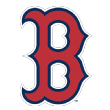 Boston Red Sox: A-minus. They tried and failed to get Kelvin Herrera in the last 36 hours before the trade deadline, but they upgraded their defense at second base by adding Ian Kinsler and improved their rotation depth by landing one of the best available starting pitchers, Nathan Eovaldi.
Boston Red Sox: A-minus. They tried and failed to get Kelvin Herrera in the last 36 hours before the trade deadline, but they upgraded their defense at second base by adding Ian Kinsler and improved their rotation depth by landing one of the best available starting pitchers, Nathan Eovaldi.
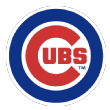 Chicago Cubs: A-minus. A lot of teams passed on Cole Hamels, believing the underlying numbers indicate he's an aging pitcher in regression. But for the Cubs, Hamels might be a perfect addition at the perfect time for both the team and the player. Hamels escapes Texas, the Rangers' rebuilding situation and the hitter-friendly ballpark and now dives right into the adrenaline of a pennant race in the National League, backed by outstanding infield defense, as he goes into free agency. The Cubs desperately needed a reliable starting pitcher and Hamels could be that guy. Additionally, the Cubs picked up reliever Brandon Kintzler, a contact pitcher who will benefit greatly from the glove work behind him.
Chicago Cubs: A-minus. A lot of teams passed on Cole Hamels, believing the underlying numbers indicate he's an aging pitcher in regression. But for the Cubs, Hamels might be a perfect addition at the perfect time for both the team and the player. Hamels escapes Texas, the Rangers' rebuilding situation and the hitter-friendly ballpark and now dives right into the adrenaline of a pennant race in the National League, backed by outstanding infield defense, as he goes into free agency. The Cubs desperately needed a reliable starting pitcher and Hamels could be that guy. Additionally, the Cubs picked up reliever Brandon Kintzler, a contact pitcher who will benefit greatly from the glove work behind him.
 New York Yankees: A-minus. No team added more talent through the trade deadline period than the Yankees: left-handed reliever Zach Britton, left-handed starter J.A. Happ, first baseman Luke Voit, right-hander Lance Lynn. The Yankees have safety nets all over the place now, and Britton has a chance to be a dangerous weapon in the postseason, especially if the team advances to the division series round. But the trade deadline work might have also felt somewhat unsatisfying to the Yankees front office, because they were unable to land Machado, the best available player, and no high-end starting pitcher, like a Jacob deGrom or a Madison Bumgarner, emerged in the market. The Yankees wanted to land big-game fish but dropped some nice sea bass instead.
New York Yankees: A-minus. No team added more talent through the trade deadline period than the Yankees: left-handed reliever Zach Britton, left-handed starter J.A. Happ, first baseman Luke Voit, right-hander Lance Lynn. The Yankees have safety nets all over the place now, and Britton has a chance to be a dangerous weapon in the postseason, especially if the team advances to the division series round. But the trade deadline work might have also felt somewhat unsatisfying to the Yankees front office, because they were unable to land Machado, the best available player, and no high-end starting pitcher, like a Jacob deGrom or a Madison Bumgarner, emerged in the market. The Yankees wanted to land big-game fish but dropped some nice sea bass instead.
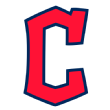 Cleveland Indians: B-plus. The Indians worked well with the modest financial flexibility they had, flipping Francisco Mejia to the Padres (at the exact right time, in the eyes of some rival evaluators who doubt whether Mejia can be a catcher in the big leagues) for two controllable relievers who will help them this year and next, Brad Hand and Adam Cimber. The acquisition of Leonys Martin rather than some other star probably disappointed some Cleveland fans, but he upgrades the outfield defense. Keep in mind that among AL contenders, the Indians will have first shot at every player who passes through waivers this month.
Cleveland Indians: B-plus. The Indians worked well with the modest financial flexibility they had, flipping Francisco Mejia to the Padres (at the exact right time, in the eyes of some rival evaluators who doubt whether Mejia can be a catcher in the big leagues) for two controllable relievers who will help them this year and next, Brad Hand and Adam Cimber. The acquisition of Leonys Martin rather than some other star probably disappointed some Cleveland fans, but he upgrades the outfield defense. Keep in mind that among AL contenders, the Indians will have first shot at every player who passes through waivers this month.
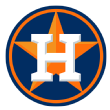 Houston Astros: B-plus. As I've written elsewhere, I thought the acquisition of Roberto Osuna was unconscionable, and it's possible if more information in his domestic violence case emerges, Major League Baseball could consider further discipline. The Astros should've believed in themselves more and expected they could find a way to win -- as they did in 2017 -- without taking on Osuna and his baggage. Viewed through the prism of competition only, the additions of Ryan Pressly and Osuna could improve their bullpen, especially if Osuna can regain his former stature as an effective closer. The Astros' trades may well make the team better, although the Osuna trade carries an unusual risk because of his circumstances. The addition of Martin Maldonado was an excellent investment, given Brian McCann's health knee issues.
Houston Astros: B-plus. As I've written elsewhere, I thought the acquisition of Roberto Osuna was unconscionable, and it's possible if more information in his domestic violence case emerges, Major League Baseball could consider further discipline. The Astros should've believed in themselves more and expected they could find a way to win -- as they did in 2017 -- without taking on Osuna and his baggage. Viewed through the prism of competition only, the additions of Ryan Pressly and Osuna could improve their bullpen, especially if Osuna can regain his former stature as an effective closer. The Astros' trades may well make the team better, although the Osuna trade carries an unusual risk because of his circumstances. The addition of Martin Maldonado was an excellent investment, given Brian McCann's health knee issues.
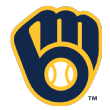 Milwaukee Brewers: B-plus. This grade could go much higher if Jonathan Schoop is recharged by the shift to a fun and promising team and plays better than he did with the Orioles this year -- and this seems to be a distinct possibility.
Milwaukee Brewers: B-plus. This grade could go much higher if Jonathan Schoop is recharged by the shift to a fun and promising team and plays better than he did with the Orioles this year -- and this seems to be a distinct possibility.
 Minnesota Twins: B-plus. The Twins became the great trade deadline outlier last year when they suddenly got hot after the front office had sold off some assets. The Twins were not swayed by that recent history, and rather than try to prop up ridiculously small odds to make the postseason, they went almost all-in on a sell-off of short-term assets -- second baseman Dozier, reliever Zach Duke, infielder Escobar. Which was the right thing to do.
Minnesota Twins: B-plus. The Twins became the great trade deadline outlier last year when they suddenly got hot after the front office had sold off some assets. The Twins were not swayed by that recent history, and rather than try to prop up ridiculously small odds to make the postseason, they went almost all-in on a sell-off of short-term assets -- second baseman Dozier, reliever Zach Duke, infielder Escobar. Which was the right thing to do.
 Philadelphia Phillies: B-plus. Wilson Ramos gives the Phillies enviable catching depth, and he and Jorge Alfaro should be an excellent complementary combination, with Ramos providing more offense and Alfaro more defense. Asdrubal Cabrera is not a good defender at any position, but his versatility defensively and offensively gives the Phillies more layers; he was an excellent addition.
Philadelphia Phillies: B-plus. Wilson Ramos gives the Phillies enviable catching depth, and he and Jorge Alfaro should be an excellent complementary combination, with Ramos providing more offense and Alfaro more defense. Asdrubal Cabrera is not a good defender at any position, but his versatility defensively and offensively gives the Phillies more layers; he was an excellent addition.
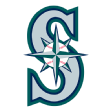 Seattle Mariners: B-plus. You can't assess the work of GM Jerry Dipoto only on the basis of what took place in recent days. Dipoto has been aggressive from the start of the season, getting what he could to improve the team in the face of injuries and Robinson Cano's suspension: relievers Alex Colome, Adam Warren, Duke, Sam Tuivailala and outfielder Cameron Maybin. So the Mariners are trying to win, and that's a really good thing. As always, the overriding question with Seattle is about the long-term cost in assets and the shape of the organization as its older generation of players begins to move on.
Seattle Mariners: B-plus. You can't assess the work of GM Jerry Dipoto only on the basis of what took place in recent days. Dipoto has been aggressive from the start of the season, getting what he could to improve the team in the face of injuries and Robinson Cano's suspension: relievers Alex Colome, Adam Warren, Duke, Sam Tuivailala and outfielder Cameron Maybin. So the Mariners are trying to win, and that's a really good thing. As always, the overriding question with Seattle is about the long-term cost in assets and the shape of the organization as its older generation of players begins to move on.
 Tampa Bay Rays: B-plus. If this grade was given purely on the volume of work, they would get the highest mark in the class. In the last hours before the trade deadline, they swapped for outfielder Tommy Pham and traded away Archer and Ramos -- this, after swapping Andriese to Arizona, Eovaldi to the Red Sox and Jonny Venters to Atlanta. Some rival evaluators might disagree with the Rays' assessment of Jalen Beeks, the pitcher picked up in the Eovaldi trade, and Austin Meadows, a former No. 1 pick who reached the big leagues with the Pirates this season.
Tampa Bay Rays: B-plus. If this grade was given purely on the volume of work, they would get the highest mark in the class. In the last hours before the trade deadline, they swapped for outfielder Tommy Pham and traded away Archer and Ramos -- this, after swapping Andriese to Arizona, Eovaldi to the Red Sox and Jonny Venters to Atlanta. Some rival evaluators might disagree with the Rays' assessment of Jalen Beeks, the pitcher picked up in the Eovaldi trade, and Austin Meadows, a former No. 1 pick who reached the big leagues with the Pirates this season.
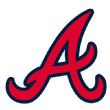 Atlanta Braves: B. This grade could soar if Kevin Gausman pitches to the greater potential other teams have seen in him for years.
Atlanta Braves: B. This grade could soar if Kevin Gausman pitches to the greater potential other teams have seen in him for years.
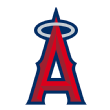 Los Angeles Angels: B. The Angels didn't have big assets to market, especially after Garrett Richards went down with an arm injury, but other teams felt they did well in the swap of Kinsler, when they added hard-throwing reliever Ty Buttrey.
Los Angeles Angels: B. The Angels didn't have big assets to market, especially after Garrett Richards went down with an arm injury, but other teams felt they did well in the swap of Kinsler, when they added hard-throwing reliever Ty Buttrey.
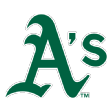 Oakland Athletics: B. Jeurys Familia, one of the best available relievers, helps their bullpen depth, and folks with other teams thought it was a steal of a trade, given what the A's gave up.
Oakland Athletics: B. Jeurys Familia, one of the best available relievers, helps their bullpen depth, and folks with other teams thought it was a steal of a trade, given what the A's gave up.
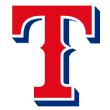 Texas Rangers: B. The Rangers made the best of a bad situation by moving some money in the Hamels deal, and by flipping Kela and Diekman.
Texas Rangers: B. The Rangers made the best of a bad situation by moving some money in the Hamels deal, and by flipping Kela and Diekman.
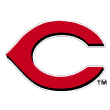 Cincinnati Reds: B-minus. Matt Harvey's first start out of the All-Star break torpedoed any chance the Reds would get something good in return, and because the team has generally played well, it makes sense for the front office to hold the lineup together rather than reflexively executing a selloff. At some point, you do need to show progress for the fans, especially in what is becoming an extensive rebuild.
Cincinnati Reds: B-minus. Matt Harvey's first start out of the All-Star break torpedoed any chance the Reds would get something good in return, and because the team has generally played well, it makes sense for the front office to hold the lineup together rather than reflexively executing a selloff. At some point, you do need to show progress for the fans, especially in what is becoming an extensive rebuild.
 Colorado Rockies: B-minus. The Rockies talked about a whole lot of different stuff but didn't do much, with their most notable acquisition being right-hander Seunghwan Oh.
Colorado Rockies: B-minus. The Rockies talked about a whole lot of different stuff but didn't do much, with their most notable acquisition being right-hander Seunghwan Oh.
 San Diego Padres: B-minus. In the end, they did not land a top-of-the-rotation starting pitcher like Archer, but that's fine. They are probably at least two years away from getting into the competitive mix in the NL West, and there would've been no point in burning significant resources to augment the rotation right now. The value of Mejia, acquired in the Hand-Cimber trade from Cleveland, will ultimately be determined by whether he can remain viable at catcher.
San Diego Padres: B-minus. In the end, they did not land a top-of-the-rotation starting pitcher like Archer, but that's fine. They are probably at least two years away from getting into the competitive mix in the NL West, and there would've been no point in burning significant resources to augment the rotation right now. The value of Mejia, acquired in the Hand-Cimber trade from Cleveland, will ultimately be determined by whether he can remain viable at catcher.
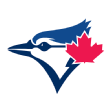 Toronto Blue Jays: B-minus. They had terrible luck with their trade pieces this year, with Josh Donaldson's body and production crumbling and Osuna becoming a toxic asset. But through their many trades of Oh, Axford, Happ, etc., they were able to add needed depth to their farm system.
Toronto Blue Jays: B-minus. They had terrible luck with their trade pieces this year, with Josh Donaldson's body and production crumbling and Osuna becoming a toxic asset. But through their many trades of Oh, Axford, Happ, etc., they were able to add needed depth to their farm system.
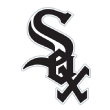 Chicago White Sox: C-plus. There had been some speculation the White Sox might move Jose Abreu, but the fact is the industry isn't placing a lot of value on corner-infield sluggers these days. Last week, the White Sox flipped Joakim Soria to the Brewers and got a couple of minor leaguers and cash considerations.
Chicago White Sox: C-plus. There had been some speculation the White Sox might move Jose Abreu, but the fact is the industry isn't placing a lot of value on corner-infield sluggers these days. Last week, the White Sox flipped Joakim Soria to the Brewers and got a couple of minor leaguers and cash considerations.
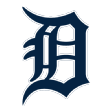 Detroit Tigers: C-plus. Detroit did the heavy lifting in its rebuild last summer, so there wasn't a whole lot for Al Avila to do this year. The high volume of available starters made it more difficult for the Tigers to market Mike Fiers, so they held him through the deadline and could move him in the August waiver period. They flipped center fielder Martin to Cleveland and got back 21-year-old shortstop Willi Castro. The Red Sox may still work to get lefty Francisco Liriano from Detroit this month.
Detroit Tigers: C-plus. Detroit did the heavy lifting in its rebuild last summer, so there wasn't a whole lot for Al Avila to do this year. The high volume of available starters made it more difficult for the Tigers to market Mike Fiers, so they held him through the deadline and could move him in the August waiver period. They flipped center fielder Martin to Cleveland and got back 21-year-old shortstop Willi Castro. The Red Sox may still work to get lefty Francisco Liriano from Detroit this month.
 Miami Marlins: C-plus. They moved some pieces, but didn't get the big deal with J.T. Realmuto. Perfectly average.
Miami Marlins: C-plus. They moved some pieces, but didn't get the big deal with J.T. Realmuto. Perfectly average.
 St. Louis Cardinals: C-plus. They seem to be in a period of serious internal assessment, and so the decision to play out the rest of this season with a bunch of young, talented pitchers at the fore is appropriate, rather than undertaking a major overhaul. They eased their glut of right-handed-hitting outfielders by moving Pham and probably have learned what others have said about Jose Martinez -- they like his hitting ability, but are wary of taking on a player who provides no defensive flexibility.
St. Louis Cardinals: C-plus. They seem to be in a period of serious internal assessment, and so the decision to play out the rest of this season with a bunch of young, talented pitchers at the fore is appropriate, rather than undertaking a major overhaul. They eased their glut of right-handed-hitting outfielders by moving Pham and probably have learned what others have said about Jose Martinez -- they like his hitting ability, but are wary of taking on a player who provides no defensive flexibility.
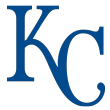 Kansas City Royals: C. The Royals felt they got good return from the Nationals for Herrera; many rival evaluators in the industry disagree, believing Kansas City didn't get the type of prospect necessary to anchor a deal for one of the best relievers in the market. Mike Moustakas hadn't played well in recent weeks and so wasn't carrying a lot of value, anyway, and the Royals got Brett Phillips, a player the Brewers had been pushing in their trade conversations.
Kansas City Royals: C. The Royals felt they got good return from the Nationals for Herrera; many rival evaluators in the industry disagree, believing Kansas City didn't get the type of prospect necessary to anchor a deal for one of the best relievers in the market. Mike Moustakas hadn't played well in recent weeks and so wasn't carrying a lot of value, anyway, and the Royals got Brett Phillips, a player the Brewers had been pushing in their trade conversations.
 San Francisco Giants: C-minus. They were the only team to not make a deal after the All-Star break, and maybe that was the appropriate response. The Giants aren't a bad team so far, but they aren't a good team, either, and because of the age and attrition on the roster, they don't have much in the way of marketable players. But for the guys in the clubhouse, the events leading up to the trade deadline must've felt really hollow.
San Francisco Giants: C-minus. They were the only team to not make a deal after the All-Star break, and maybe that was the appropriate response. The Giants aren't a bad team so far, but they aren't a good team, either, and because of the age and attrition on the roster, they don't have much in the way of marketable players. But for the guys in the clubhouse, the events leading up to the trade deadline must've felt really hollow.
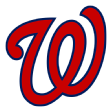 Washington Nationals: C-minus. GM Mike Rizzo held on to Bryce Harper and just about everybody else on the team, saying he believes in the group. But the Nationals apparently didn't believe in the group enough to add starting pitching, and the only deadline deal they made was the swap of Kintzler to the Cubs. This is understandable: Despite Harper's subtle complaint about the team failing to land Realmuto, Rizzo has worked to make this team better in recent years, making multiple trades to improve the bullpen. It's now really up to the players to turn around what has been a lost season, and maybe that's the way it should be anyway.
Washington Nationals: C-minus. GM Mike Rizzo held on to Bryce Harper and just about everybody else on the team, saying he believes in the group. But the Nationals apparently didn't believe in the group enough to add starting pitching, and the only deadline deal they made was the swap of Kintzler to the Cubs. This is understandable: Despite Harper's subtle complaint about the team failing to land Realmuto, Rizzo has worked to make this team better in recent years, making multiple trades to improve the bullpen. It's now really up to the players to turn around what has been a lost season, and maybe that's the way it should be anyway.
 New York Mets: F. Contenders desperately searched the trade market for any high-impact starting pitchers who would be under team control beyond 2018, and the Mets possess two starters who fit that description, deGrom and Noah Syndergaard, in a lost season. The Mets could have made a killing in the market and pulled out a haul of prospects to reinvigorate their franchise, and now the moment is lost. The value of deGrom and Syndergaard might never again come close to what it was in the past two weeks, and now the Mets are faced with the mountainous task of trying to improve the team for 2019 enough to justify the decision to hold on to their pitching. If they aren't willing to spend big dollars on free agents, there's almost no chance that can happen.
New York Mets: F. Contenders desperately searched the trade market for any high-impact starting pitchers who would be under team control beyond 2018, and the Mets possess two starters who fit that description, deGrom and Noah Syndergaard, in a lost season. The Mets could have made a killing in the market and pulled out a haul of prospects to reinvigorate their franchise, and now the moment is lost. The value of deGrom and Syndergaard might never again come close to what it was in the past two weeks, and now the Mets are faced with the mountainous task of trying to improve the team for 2019 enough to justify the decision to hold on to their pitching. If they aren't willing to spend big dollars on free agents, there's almost no chance that can happen.
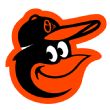 Baltimore Orioles: Incomplete. Their approach was exactly as it should have been: Move any veteran player for prospect return. Machado: Gone. Britton: Gone. Brad Brach, Schoop, Gausman, Darren O'Day: Gone, gone, gone and gone. It's impossible to give a fair grade to the Orioles today because the overall assessment will be greatly affected by how the acquired prospects, such as Yusniel Diaz, fare in the years ahead. On our trade deadline podcast Tuesday, taped an hour after the deadline, Keith Law said he believes the Orioles got more quantity than quality in these deals. Time will tell.
Baltimore Orioles: Incomplete. Their approach was exactly as it should have been: Move any veteran player for prospect return. Machado: Gone. Britton: Gone. Brad Brach, Schoop, Gausman, Darren O'Day: Gone, gone, gone and gone. It's impossible to give a fair grade to the Orioles today because the overall assessment will be greatly affected by how the acquired prospects, such as Yusniel Diaz, fare in the years ahead. On our trade deadline podcast Tuesday, taped an hour after the deadline, Keith Law said he believes the Orioles got more quantity than quality in these deals. Time will tell.
